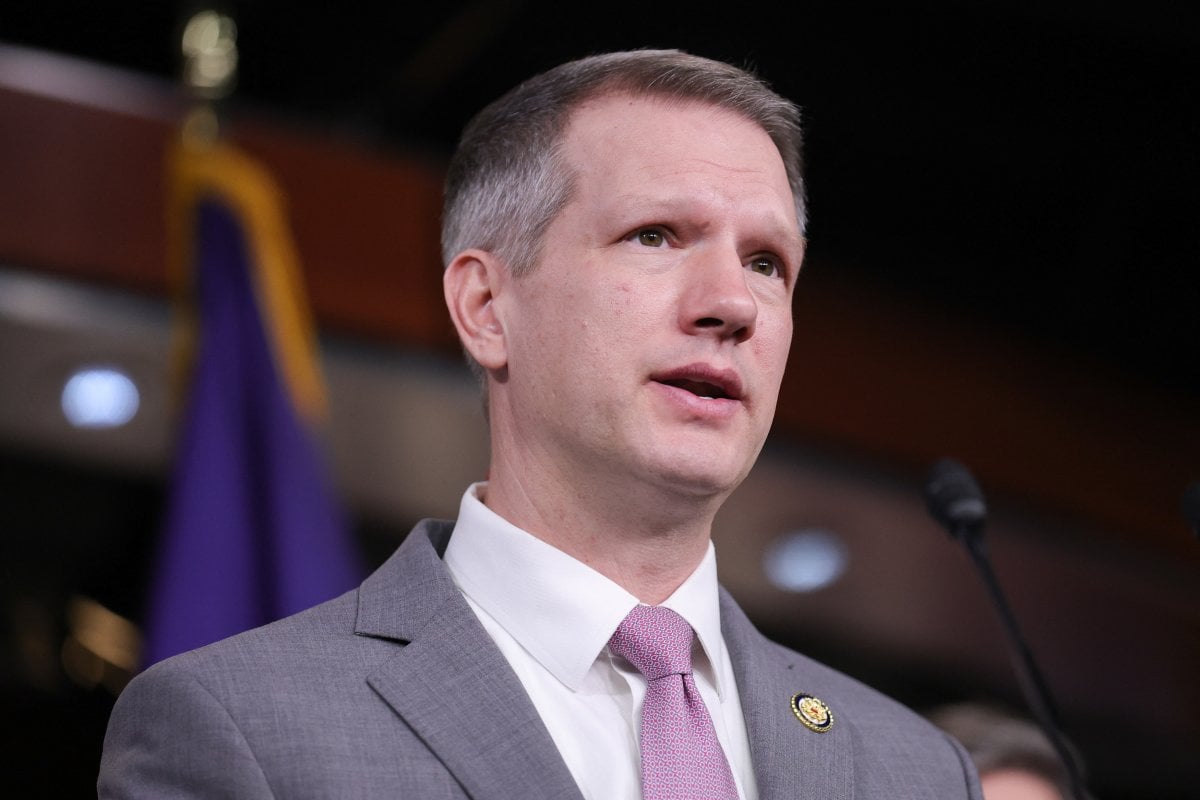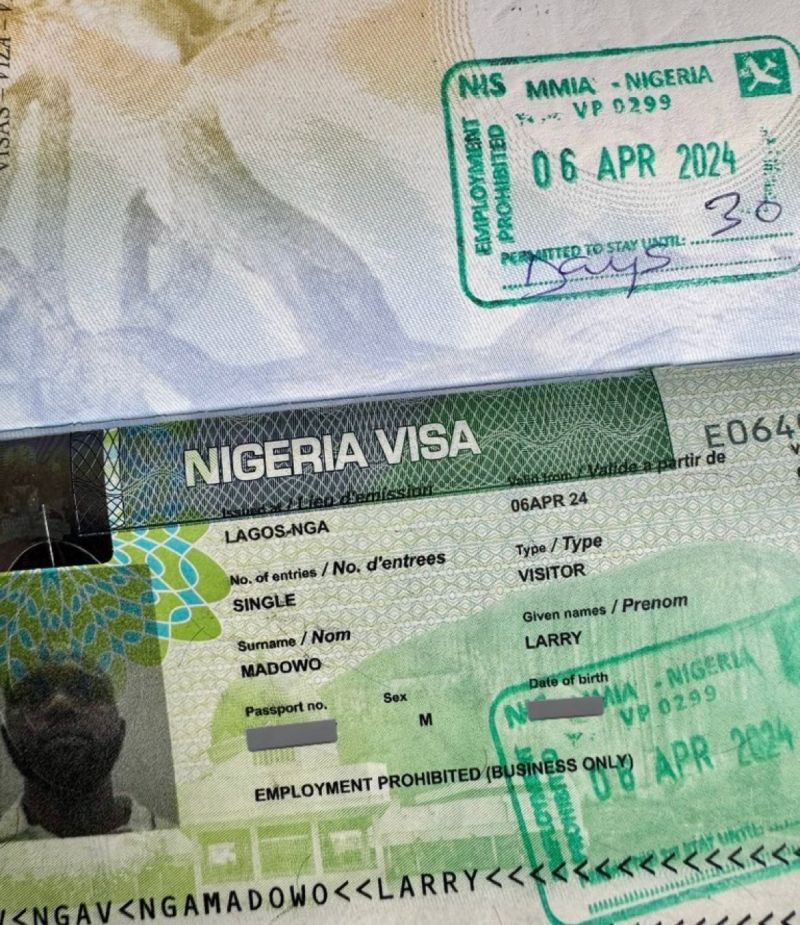
US Lawmaker Slams Nigeria Over Misused Military Aid, Cites Rising Killings of Christians
A storm of diplomatic controversy is brewing as United States lawmaker, Riley Moore, has openly accused the Federal Government of Nigeria of failing to account for billions of dollars in military assistance received from Washington. The outspoken congressman, in a statement that has since gone viral across international media, expressed
A storm of diplomatic controversy is brewing as United States lawmaker, Riley Moore, has openly accused the Federal Government of Nigeria of failing to account for billions of dollars in military assistance received from Washington. The outspoken congressman, in a statement that has since gone viral across international media, expressed grave concern over what he described as Nigeria’s “alarming failure” to protect its Christian population despite years of military funding and logistical support from the United States. Moore’s remarks have sparked widespread reactions both within and outside Nigeria, reigniting debates over governance, accountability, and the persistent insecurity that continues to claim lives across the nation.
According to Moore, the United States has, over the past decade, funneled an enormous amount of resources into Nigeria’s defense and counterterrorism operations under the pretext of fighting insurgency, terrorism, and religious extremism. Yet, he claims, there has been no visible improvement in the security of lives and properties, especially in communities dominated by Christians who have continued to suffer devastating attacks from extremist groups. “Billions of American taxpayer dollars have been sent to Nigeria to support their military in countering Boko Haram and other militant organizations. Yet, what we see are continued massacres, burnt churches, and a trail of blood that never seems to end,” Moore said during a congressional session on foreign aid oversight.
The lawmaker went further to accuse Nigerian officials of “gross negligence and possible misappropriation” of funds meant to strengthen the country’s security apparatus. He alleged that while the Nigerian government frequently appeals to the international community for military aid and intervention, the situation on the ground shows little to no progress. “Where has the money gone? Why are innocent Christians still being targeted and slaughtered in their homes, schools, and places of worship?” Moore asked rhetorically, drawing applause from some of his colleagues and criticism from others who viewed his statement as diplomatically sensitive.
Nigeria’s government, however, has not remained silent. In a swift response, officials from the Ministry of Information described Moore’s claims as “unfounded, misleading, and politically motivated.” According to the ministry’s spokesperson, the Nigerian government remains committed to fighting terrorism and religious intolerance, insisting that billions in foreign military support have been utilized transparently and effectively. “We reject any insinuation that Nigeria has misused funds or failed to act responsibly. The fight against terrorism in our country is complex and multifaceted. It’s not just a religious issue—it’s a national and regional security challenge,” the statement read.
Despite the official rebuttal, many Nigerians have expressed skepticism about their government’s defense. Social media has been awash with heated discussions, with citizens questioning where the vast sums of money have gone given the worsening state of insecurity. Over the years, insurgent attacks, kidnappings, and ethno-religious violence have continued unabated in several parts of the country. Villages have been razed, churches and mosques attacked, and hundreds of families displaced, yet there seems to be little accountability or transparency from the authorities.
Religious leaders, particularly from the Christian community, have also weighed in, supporting Moore’s call for scrutiny. The Christian Association of Nigeria (CAN) released a statement saying that while it does not endorse foreign interference in national matters, the U.S. lawmaker’s concerns are valid. “For too long, Christians in Nigeria have been victims of unprovoked attacks while the world watches. If an American congressman is asking where the aid is going, then the Nigerian government owes both citizens and the international community a detailed explanation,” the statement read.
On the international front, Moore’s comments have revived conversations about the effectiveness of U.S. foreign aid to Africa, especially in countries plagued by corruption and mismanagement. Some analysts argue that the United States has often failed to ensure strict oversight and accountability mechanisms in its military assistance programs. Nigeria, being one of Africa’s largest recipients of U.S. military aid, has come under particular scrutiny for years. Critics point out that despite the massive inflow of resources, Nigeria’s military still struggles with outdated equipment, poor intelligence coordination, and low morale among soldiers.
Security experts have described Moore’s outburst as a wake-up call for both nations. Dr. Anthony Fields, an international relations analyst based in Washington, noted that “Moore’s statement reflects growing frustration in Congress over unchecked spending in foreign defense support. If the U.S. keeps writing blank checks to governments that cannot show measurable results, it risks fueling the very instability it seeks to prevent.” Fields further suggested that future aid should be tied to verifiable metrics and transparent reporting mechanisms to ensure that funds are used strictly for their intended purposes.
In Nigeria, opposition figures have seized upon Moore’s statement as ammunition against the ruling administration. Several opposition politicians took to social media, accusing the government of failing not only in transparency but also in its fundamental duty to protect lives. “It’s shameful that a foreign lawmaker is calling out what our own legislators have failed to confront,” one senator remarked anonymously. Civil society organizations are now calling for an independent audit of all foreign military assistance received by Nigeria in the last decade, urging the government to make the findings public.
Meanwhile, in the U.S., Moore’s comments have sparked debate over whether the U.S. should reconsider its military relationship with Nigeria. Some human rights organizations have praised him for “speaking truth to power,” emphasizing that the Nigerian government’s alleged failures have emboldened extremist elements who continue to terrorize innocent citizens. Others, however, argue that Moore’s statement risks damaging diplomatic relations between both countries at a time when global cooperation is needed to fight terrorism and religious persecution.
As the controversy unfolds, the Nigerian government faces increasing pressure to demonstrate accountability and results. With insecurity still raging in the North and pockets of violence spreading to other regions, the country’s image before the international community remains fragile. Questions about governance, transparency, and the sanctity of human life now hang heavily in the air.
For now, Riley Moore’s explosive statement has opened a Pandora’s box of diplomatic and political tension. Whether it leads to serious reforms or fizzles out like past accusations remains to be seen. But one thing is certain—his words have struck a nerve, forcing Nigeria and its allies to confront an uncomfortable truth about the thin line between aid and accountability, between promises and performance, and between the world’s sympathy and a nation’s silence in the face of unending bloodshed.
Share this post
Related Posts

No More Hiding: FG Launches Online Amnesty Portal for Overstaying Foreigners Before August Crackdown
In a move that has sent shockwaves through Nigeria’s immigrant community and sparked a flurry...

“The Lifestyle Truly Costs”: Tolanibaj’s ₦1.4 Million Wedding Reveal Sparks Fresh Conversation on Image, Influence, and the Price of Soft Life
Parfait—a dessert that conjures images of layers of creamy yogurt, fresh fruit, and crunchy granola—is...

SAKA SAYS “FOREVER”: ARSENAL STAR PROPOSES TO LONGTIME LOVE TOLAMI BENSON IN LUXURY LONDON FAIRYTALE
Bukayo Saka, one of England’s brightest football talents and a fan favourite at Arsenal, has...